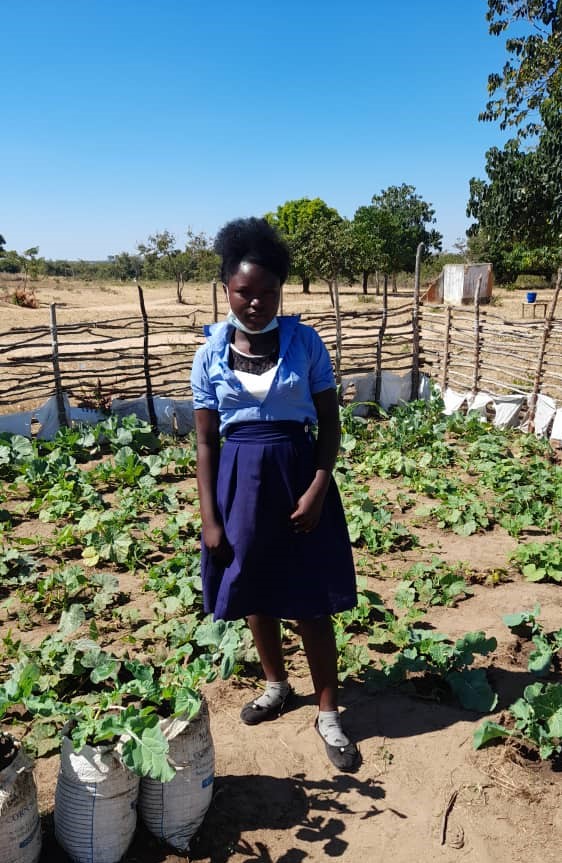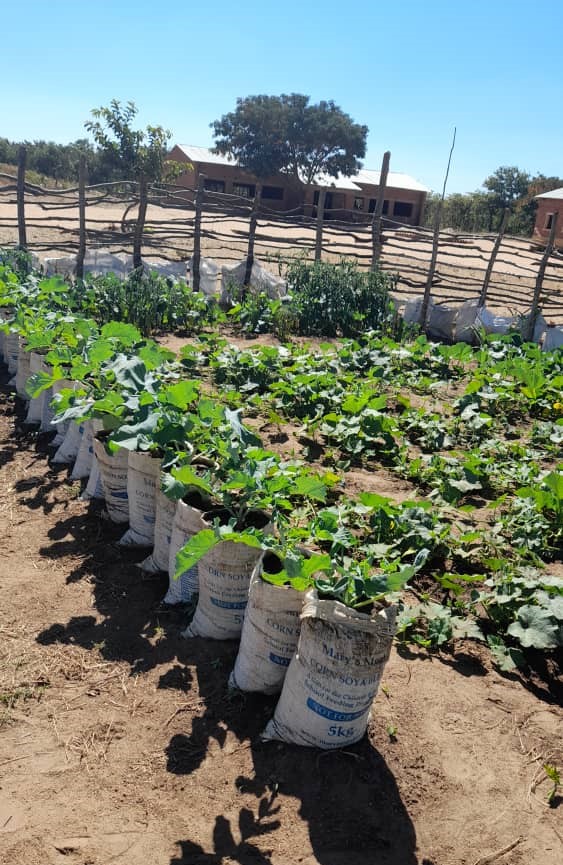World Hunger Day
This World Hunger Day, we are celebrating a garden project at a school in Zambia, fuelling students with fresh and nutritious vegetables and teaching them valuable skills for the future.
World Hunger Day – recognized annually on May 28th – raises awareness of the hundreds of millions of people around the world living with chronic hunger and poverty. This year, young people who are championing sustainable solutions to the global challenge to end world hunger will be spotlighted by the founding organization, The Hunger Project, throughout the day. One group of children taking matters into their own hands are the pupils at Mphandu Pandu Primary School in Zambia – a country with alarmingly high levels of food insecurity, particularly in the Eastern Province, where Mary’s Meals operates its large school feeding program. The children here are growing their own produce in empty Mary’s Meals food sacks to produce fresh, nutritious vegetables to enjoy with their vitamin-enriched porridge. The children are also learning to support themselves financially through farming the land and raising money for the school to buy essential items.
 Joyce Chipeta, a 14-year-old Grade 7 student, tells us: “As for now, the only crop we grow is kale, but we look forward to growing various crops such as onions, carrots, spinach and cabbage in the near future.
Joyce Chipeta, a 14-year-old Grade 7 student, tells us: “As for now, the only crop we grow is kale, but we look forward to growing various crops such as onions, carrots, spinach and cabbage in the near future.
“Sometimes when we have school events like sports, we cook the vegetables from our mobile gardens. Selling vegetables also helps the school in buying basic things that are needed to operate well. We managed to raise money for buying school stuff such as chalks and pens from the first produce."
Joyce continues: “The school garden is very important to me because it equips my mind with essential skills and knowledge for the future. We are taught how to water and remove weeds from the crops as well as how to identify and destroy various pests. When I grow up, I want to pursue a course in agriculture.
“My wish is to see this school gardening initiative grow big so that every pupil, especially those who come from vulnerable homes, can benefit from the project by buying them books, pens and even uniforms.”
The school’s headteacher, Mr. Tenson Nyirenda, explains that the venture began partly as a way of enhancing the nutritious lunches provided by Mary’s Meals, but quickly became much more:
“The school mobile gardening has become an amazing interdisciplinary educational tool allowing subjects to be taught such as home economics, environmental science and nutrition. Children are the future leaders of our nation and for them to reach their fullest potential, a healthy diet is very important for their minds and the development of their bodies.”
 On the west coast of Africa, a similar school garden project was introduced in the early days of the Mary’s Meals school feeding program in Liberia, following 14 long years of civil war. Many schools still run the gardens with the aim of reskilling future generations and giving pupils additional tools for self-sufficiency.
On the west coast of Africa, a similar school garden project was introduced in the early days of the Mary’s Meals school feeding program in Liberia, following 14 long years of civil war. Many schools still run the gardens with the aim of reskilling future generations and giving pupils additional tools for self-sufficiency.
Emmanuel Williams is a 10-year-old student at the Tomorrow’s People Foundation School in Bong County. He says: “I really like the vegetable garden – so much so that I get seriously involved with their planting. I help to plant, weed and water the garden. I feel so enthusiastic about working in the garden and enjoy the fruits of our labour.”
The Covid-19 pandemic, the climate crisis and conflict have deepened the world hunger crisis. Today, it is estimated that up to 811 million people in the world still go to bed on an empty stomach each night. 73 million children living in extreme poverty are in need of school feeding. 200 million children’s lives are at risk because they are malnourished. Food is changing the story for the millions of children enrolled in our school feeding program. To learn about some of their stories, head over to our website: News | Mary's Meals.
Just $31.70 feeds a child for a whole school year.